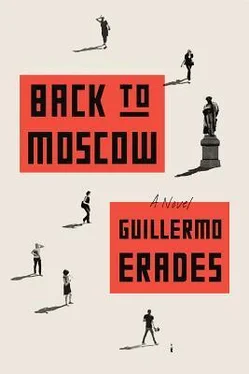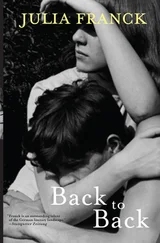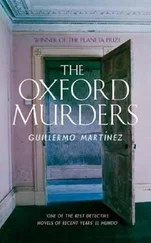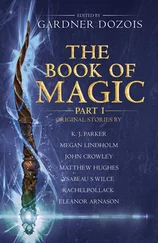I stood on the balcony, my nose going numb with the cold. The snowstorm had paused for a moment but tiny snowflakes kept on swirling in the darkness, sparkling around the street lamps.
Winter had arrived.
LENA, HERE’S MY BOOK about Moscow. I imagine these days you don’t have much time to read books. But if destiny puts these pages in your hands — the way it brought us together so many years ago — I can tell you now what I was thinking back then, on my balcony, when the first snow of the season fell over Moscow and you left my flat in the middle of the night. Fuck you. Fuck you and your sad stories and your endless search for pain. And fuck that troubled soul of yours that I was never Russian enough to understand.
PART THREE. Anna’s Punishment
UNLIKE PUSHKIN’S TATYANA, WHO stays with her husband despite having a thing for Onegin, Anna Karenina decides to dump both husband and son so that she can pursue her affair with Vronsky.
These two stories, arguably the best-known love stories in Russia, have rather different endings. Two married women love another man. Married woman number one, Pushkin’s Tatyana, decides to stick with her husband. Married woman number two, Tolstoy’s Karenina, ditches her husband and elopes with her lover. Married woman number one lives virtuously — if not happily — ever after. Married woman number two falls into disgrace and ends up throwing herself under a train.
Thing is, we know Anna Karenina could’ve got away with her affair, if only she hadn’t been such a drama queen. Tolstoy makes sure we understand as much, by showing us that other women in Anna’s milieu were having affairs — discreetly, without major repercussions. But Karenina makes a big fuss about her story with Vronsky and ends up messing everything up.
As a result of her public infidelity, Karenina gets a bad reputation, and all of a sudden it’s uncool among the elitni tusovka to be seen near her. She loses her friends. All she has now is Vronsky. Vronsky likes Karenina, but she becomes so clingy and dependent that, at some point, he feels suffocated. Who could blame him.
So Vronsky does what anyone in his position would do: he tries to cool things off. He lets Anna know that he would like her to go and get a life of her own, but of course now she can’t because she has become a social outcast. Vronsky still has his friends, because he is a man, and in nineteenth-century Russia — as in twenty-first-century Russia — men can fuck around and remain respectable members of society.
Anna is now jealous and kind of paranoid and she whines all day. She becomes a bore. So Vronsky tells her, what the fuck, Anna, just chill out. But Anna Karenina, who’s a sufferer, makes a scene about Vronsky’s every move. Is Karenina proving the extent of her love through her suffering? Vronsky won’t have any of it, and she becomes more desperate — unbearable. She has nowhere to go. In the end, she can’t stand it any longer and, in what’s probably the most famous scene in Russian literature, she goes and throws herself under a train.
Tolstoy shows us a parallel storyline, that of Levin and Kitty, who enjoy a stable if somewhat dull marriage that is based not on carnal love, but on mutual respect and sacrifice. Is Tolstoy against the idea of romantic passion?
Kind of. Levin, Tolstoy’s alter ego in the novel, is motivated not by his passion for Kitty, but by the intellectual notion of domestic life, the concept of creating a family.
Anna Karenina is punished by Tolstoy, who writes the story from an omniscient God-like point of view. In a way, Anna’s punishment is to be expected — Lev Nikolaevich had forewarned readers by giving his book an epigraph of a scary Bible quote: ‘Vengeance is mine, and I will repay.’
So Anna Karenina pays, first with her social status, then with her sanity, finally with her life. All because she made the wrong choices. But what are those wrong choices? What is, in the end, the fateful decision Anna has to pay for?
She doesn’t pay for having an extramarital affair. Nor does she pay for abandoning her child, something Tolstoy would not have considered particularly wrong. Karenina is punished for betraying her own nature, her Russianness. Trying to feed her romantic and sexual desires, Anna Karenina forgot Tatyana’s lesson: that life is not about happiness — it’s about meaning. For that, she deserves to be crushed by a train.
THE MORNING AFTER THE first snowfall I awoke to the sound of metal shovels scraping the asphalt in the street. I made coffee and toast and sat by the balcony. Down in the courtyard, street sweepers in orange uniforms were gathering piles of snow, then loading the snow onto their trucks. The sky was cloudless, cosmos blue. The roofs of the city were covered in white.
I checked my phone and saw that Lena had not replied to my text message. I showered, put on winter clothes, went down to the street. In the metro, I prepared mentally for my monthly meeting with Lyudmila Aleksandrovna. Typically, after talking about the weather, I would tell her what I was reading, which, to her disappointment, was rarely academic books or articles but mostly novels, the classics, which she thought I should have known by now. She would then give me some pointers for my research, recommend further reading and, when we ran out of things to say, we would discuss politics, history or whatever was in the news.
I had to admit that I wasn’t dedicating much time to my research, at least not to the more conventional part — reading scholarly papers, meeting professors, visiting the library. Come to think of it, I hadn’t been to the library in weeks. Not that I wasn’t working, but getting to know Russian women was taking up most of my time. Why should I bother with dusty old literary theories — I thought, as the metro sped through the tunnels — when I can spend my time reading Chekhov and meeting real women?
I arrived at the university before eleven, just in time for our meeting. When I entered her office, Lyudmila Aleksandrovna was reading at her desk, hidden behind stacks of books and papers.
‘Please sit down,’ she said. ‘Let me boil some water.’
She approached a side table under the bookshelves, switched the rusty kettle on. The water must have been hot because it boiled in a few seconds.
‘Finally, the snow,’ she said, sitting at her desk with two steaming cups of tea before her. ‘So late in the season. If the weather keeps changing year after year, soon we’ll have no winter at all. You know, in soviet times winters were cold and dry. They always came at the same time of year.’
‘Everything was better organised in the Soviet Union,’ I said.
‘Exactly,’ she said, missing the irony of my remark. ‘Everything worked back then. Not like now. Don’t believe what they tell you in the West, Martin, life was much better then. Life was dignified.’
I sat across from her at her desk, keeping steady, afraid to lean back in case my wobbly chair fell apart. ‘It must have been an interesting time.’
‘Good times indeed,’ she said softly, speaking not to me but to the tea bag she was taking out of her cup. ‘You know, back in the 1970s, I used to travel a lot. I had to attend academic congresses and literary seminars all across the Soviet Union. It was wonderful. We even had seminars in Sochi, Martin, can you imagine?’
‘Yes, Sochi.’
The fabled seminars in Sochi must have been important for Lyudmila Aleksandrovna, because she mentioned them almost every time we met.
‘We stayed in a beautiful dom otdykha by the sea,’ she went on, ‘very quiet and peaceful, and we had academic discussions until late in the night. And everything was paid for by the trade union! Everything, Martin, can you imagine?’
Читать дальше












